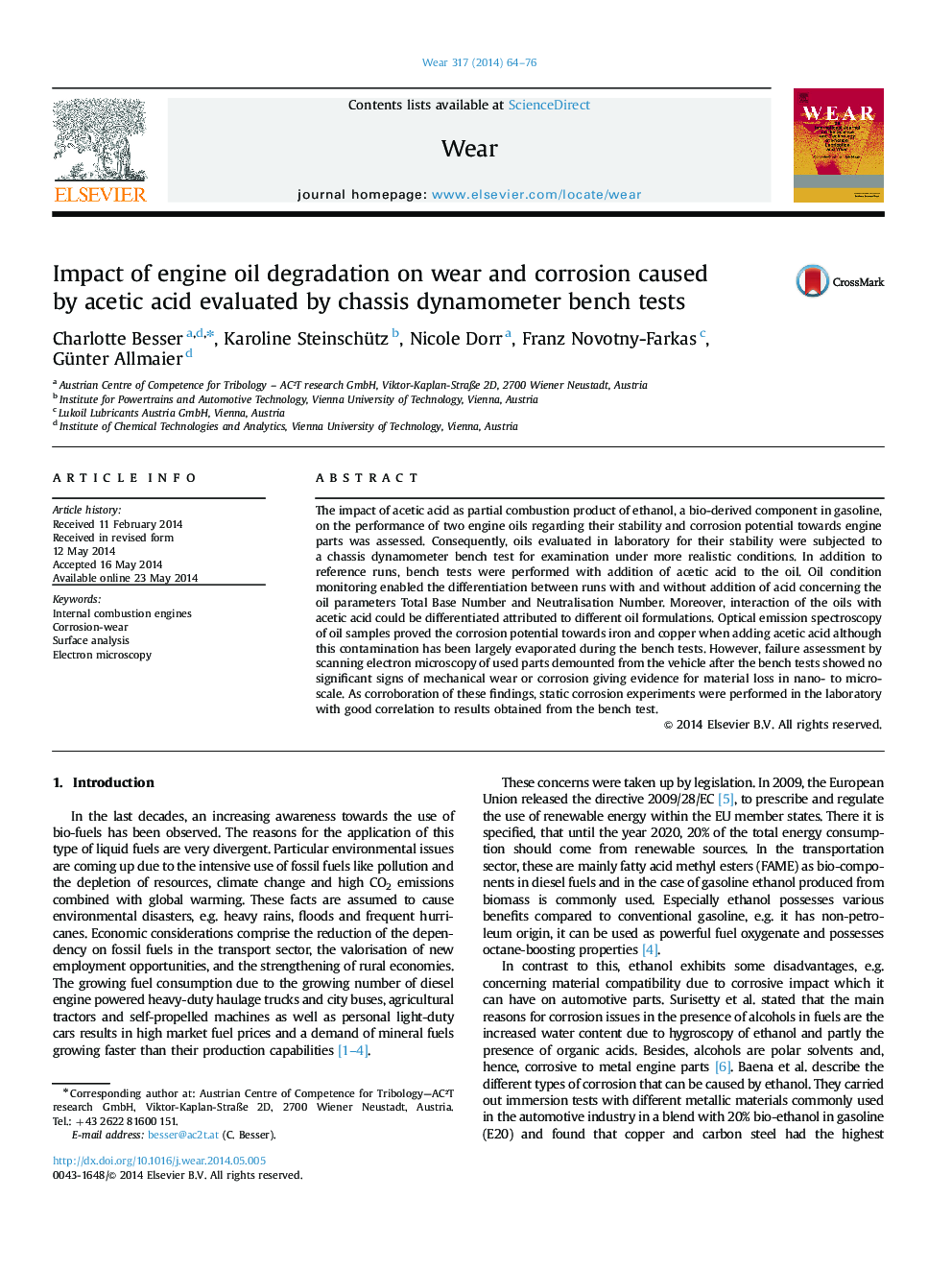| Article ID | Journal | Published Year | Pages | File Type |
|---|---|---|---|---|
| 617273 | Wear | 2014 | 13 Pages |
•Evaluation of impact of acetic acid on stability and corrosiveness of engine oils.•Oil degradation accelerated by a dynamometer joined with artificial alteration.•Good correlation between results from the bench test and results generated in laboratory.•Elevated corrosive potential of studied engine oils used in bio-fueled engines.•Qualitative assignment of material loss caused by corrosion and/or mechanical wear.
The impact of acetic acid as partial combustion product of ethanol, a bio-derived component in gasoline, on the performance of two engine oils regarding their stability and corrosion potential towards engine parts was assessed. Consequently, oils evaluated in laboratory for their stability were subjected to a chassis dynamometer bench test for examination under more realistic conditions. In addition to reference runs, bench tests were performed with addition of acetic acid to the oil. Oil condition monitoring enabled the differentiation between runs with and without addition of acid concerning the oil parameters Total Base Number and Neutralisation Number. Moreover, interaction of the oils with acetic acid could be differentiated attributed to different oil formulations. Optical emission spectroscopy of oil samples proved the corrosion potential towards iron and copper when adding acetic acid although this contamination has been largely evaporated during the bench tests. However, failure assessment by scanning electron microscopy of used parts demounted from the vehicle after the bench tests showed no significant signs of mechanical wear or corrosion giving evidence for material loss in nano- to micro-scale. As corroboration of these findings, static corrosion experiments were performed in the laboratory with good correlation to results obtained from the bench test.
